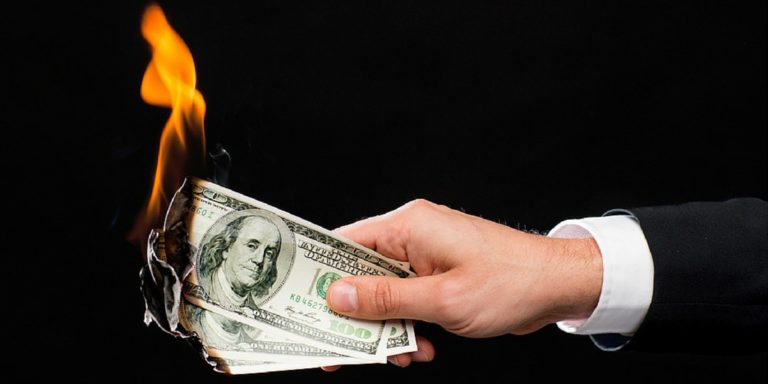A concept of a brand is intangible — it’s the total sum of elements that make one company’s identity in the public space. These elements include everything from a business logo and website over marketing materials to sponsors. All of the listed helps shape people’s perception of a company as a whole. That very perception or impression of a brand’s identity makes companies stand out from others and attract customers.
Creating a business identity is most commonly known as branding. The process helps companies spread the message of their purpose and personality and induce emotion in customers. It is beneficial in many ways, aiding companies in building trust and credibility by providing valuable products and services for customers.
Event branding borrows the same elements of organizational branding but also differentiates from it. While your events should reflect your organization, they should also form a brand of their own to create unique experiences that attract wider audiences.
Shaping the perception of your attendees is crucial for long-term success. When people attending your events have a positive experience and talk about it with others, they help develop a positive picture of your brand. Positive association and consistent brand presentation can significantly increase revenue. By standing out with a clear and exciting brand, you can attract sponsors, attendees, and profit-making possibilities.
The Power of Event Branding
Event branding is a hallmark of event marketing for international powerhouse companies, allowing consumers to connect with them through new experiences. Think about Red Bull’s extreme sports competitions or blend of art, style, and playground fun in 29Rooms. These events have distinct personalities that complement the brands of their businesses.
But you don’t have to be a titan of industry to develop a winning event brand. In Fairbanks, Alaska, the Fairbanks Symphony Orchestra throws an annual Beat Beethoven 5K, in which participants race the legendary Fifth Symphony. Winners get free concert tickets, and the fundraiser gives the orchestra a huge boost every year. More than that, the event has put this Alaskan orchestra on the cultural map.
Branding also distinguishes the best fairs, festivals, and other events. For example, Coachella has become identifiable as a lifestyle and fashion brand, not just a concert.Â
By focusing on events as brands more than throwing successful one-time experiences, the mentioned organizations established themselves on the market and generated higher revenue. A strong brand strategy opens new opportunities for you and helps you grow. When attendee awareness and engagement rise, you are more likely to reap the awards through repeated purchases, word of mouth, and more. You can also get a chance to boost:
- Ticket sales
- Ad space
- Sponsorship
- Merchandise
- Special packages or add-ons
How to Develop Your Event Brand
In a world changed by the COVID-19 pandemic, opening your mind to new possibilities and technologies that revise the definition of an event is crucial. Nothing quite replaces live experiences, but you can supplement and enrich them through innovations. We gathered some tips to help you form your event brand and ensure its success, no matter what form it takes.
Design an Event Page or Website
One of the first steps in developing the event brand is creating an appealing event website that showcases your purpose and mission. You can also use the website to sell tickets and merchandise, direct people to your social accounts, and release exciting teasers and branded content.
For example, you might set up a blog and populate it in the months leading up to the event. Try writing articles such as “How to Make the Most of Your [Event Name] Experience,” “5 Nearby Attractions You Won’t Want to Miss,” or “What to Pack for [Event Name] – and What to Leave at Home.”
Get people excited about the event, whether through the website or event page. Raising anticipation will ensure an enjoyable experience even before the event starts.
Go Hybrid
The pandemic forced event organizers to take their plans online. Virtual events have become a mainstay of business and social calendars in the last two years. According to the Forecasts research, the virtual aspect is here to stay and could be a significant part of the event landscape in the future.
Think about your brand. Does it make sense to take the experience online or make it fully hybrid? Are you a local organization, or is your base more widespread, which might argue for the greater accessibility of virtual venues? You might also consider whether you can use a combination of online and in-person experiences to create a tiered ticket system.
Use Event Apps and Social Media to Extend the Experience
Event software can be your ally in improving communication with event participants. It allows both blast communication and personal planning. The right software can also help you collect information to refine the event and improve future ones, allowing you to distribute surveys and solicit feedback.
A branded platform can also be a great place for people to connect, sign up for limited mini-events, and figure out where to go next. An event app is another solution you can use to harmonize the brand experience across an event — even across different venues and types of attendance.
Create a Series Rather Than a Blowout
The big blockbuster isn’t always the answer. Small companies may find that distributing the work across multiple events makes the workload more manageable. Micro events also help managers to make the most of smaller budgets.
A branded series gives customers a chance to engage with you in a more sustained way. They might invest in a series of webinars, a collection of fitness challenges, or a monthly happy hour.
You can also offer events as bundled packages or season tickets. Get people to commit at the beginning. Don’t forget to promote upcoming events while the engagement is at its peak.
Showcase Your Values
Do you know that 71% of consumers prefer to buy from businesses that share their values? The number is even higher among millennials.Â
How does your brand strategy align with your organization’s values? While you don’t want to use social issues as marketing gimmicks, try to identify opportunities that resonate with your business and industry.
Make sure that you practice what you preach. If you’re coming out strong for social equity, take a hard look at your hiring practices. If you’re an environmentally-conscious corporation, disposable swag probably isn’t the best merchandise you can offer.
Innovate
The most successful event brands are sometimes the most outrageous. Your target audience has seen and done it all. Explore surprising themes or more innovative experiences. Go beyond the live/digital model and invest in augmented and virtual reality events, which have shown success in recent years.
Take Your Branding to the Next Level
Event branding is an abstract concept, but taking a grasp of it is not difficult with proper support. We’re here to help you provide an immersive and cohesive experience. Create your event with Events.com and take advantage of our templates for branded event pages and promotional materials.Â
Events.com also provides top-notch solutions in both virtual events and event management software. We make it easier for you to:
- Sell merchandise
- Check-in participants
- Market your event
- Manage sponsors
- Create hybrid or virtual events
We know how important a strong event brand is, and we are on a mission to help you craft yours.




